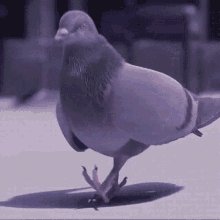Categories Writing
7 days
30 days
All time
Recent
Popular
So a final thread from me as your host today: some top tips on how to write for a popular audience about complicated subjects #space #science #writing #storytelling

The essence of any good communication is simplicity. It’s the same in print, television, radio, online, or attaching notes to carrier pigeon’s legs.

In the sixties, a Granada current affairs show set the template for using a visual medium more effective: it was pioneered by a remarkable fellow called Tim Hewat, a flavour of whose personality is here:
Up to this point, most television in this country had been akin to putting radio on television: most of it was beyond parody though this from Harry Enfield is spot on -- the patronising smug tone that meant the BBC was nicknamed "Auntie" --
And take a look at the longest running TV show as it then appeared: https://t.co/T4FdppnQMo
(Patrick was a brilliant broadcaster. The point I am trying to make is the medium was not exactly groundbreaking in the visuals department)

The essence of any good communication is simplicity. It’s the same in print, television, radio, online, or attaching notes to carrier pigeon’s legs.

In the sixties, a Granada current affairs show set the template for using a visual medium more effective: it was pioneered by a remarkable fellow called Tim Hewat, a flavour of whose personality is here:
Up to this point, most television in this country had been akin to putting radio on television: most of it was beyond parody though this from Harry Enfield is spot on -- the patronising smug tone that meant the BBC was nicknamed "Auntie" --
And take a look at the longest running TV show as it then appeared: https://t.co/T4FdppnQMo
(Patrick was a brilliant broadcaster. The point I am trying to make is the medium was not exactly groundbreaking in the visuals department)



